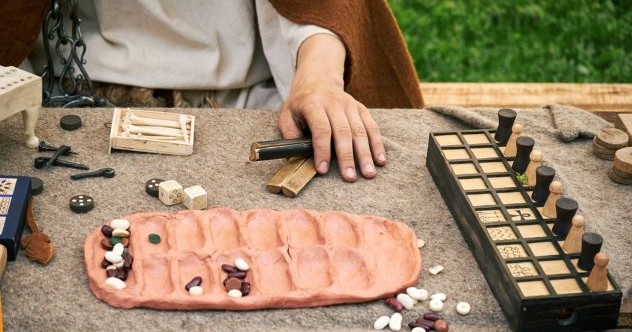Now Reading: 10 Timeless Strategy Games from Around the World
-
01
10 Timeless Strategy Games from Around the World
10 Timeless Strategy Games from Around the World

Swift Summary:
- Strategy games have been integral to human culture, with many originating in ancient civilizations.
- The article covers ten obscure and ancient strategy games from various regions:
– Seega (North Africa): Played on a grid, involves capturing pieces by flanking horizontally or vertically; emphasizes positioning and board control.
– Tablut (Scandinavia): Asymmetric game mirroring viking warfare, focusing on protecting or capturing the king.
– Tsoro (Zimbabwe): A fast-paced mancala-style game involving sowing seeds into pits; emphasizes timing and anticipation.
– Surakarta (Java, Indonesia): Utilizes unique circular loops for complex capture mechanics on a grid-based board.
– Five field Kono (Korea): minimalist design focused on occupying spaces without elimination mechanics.
– Fidchell (Ireland): A mythical strategy game played by kings in Irish tales; involved moving and trapping pieces like chess rook moves.
– Mehen (Ancient Egypt): A serpent-shaped board game combining movement with symbolic undertones of protection and rebirth.
– Ludus Duodecim Scriptorum (Rome): Roman race-game employing dice rolls for strategic movement across three rows of squares resembling backgammon mechanics.
– Petteia (Greece): Strategic flanking-based positional gameplay cited in Greek beliefs texts as demonstrating logical skill.
– pachisi (India):** Known for its cross-shaped board requiring cowrie shells to strategize piece movements with blocking tactics.
For more detailed exploration of these games, check the source linked below.
Indian Opinion analysis:
The mention of Pachisi among other ancient global strategy games highlights how deeply entwined cultural heritage is within such creations. Pachisi’s legacy demonstrates India’s historical emphasis on intellectual pursuits blended with accessible leisure activities that spanned social strata-from villagers to royalty like Akbar the Great. Its competitive yet family-centric nature reflects broader Indian values around community engagement through recreation.
This inclusion alongside lesser-known global counterparts also underscores India’s prominent role in contributing enduring traditions to international gaming histories.While technology has transformed contemporary gaming trends, customary strategy games such as Pachisi still serve as rich reflections of strategic ingenuity rooted in history.Link for full content exploration here 👉 Read More


























